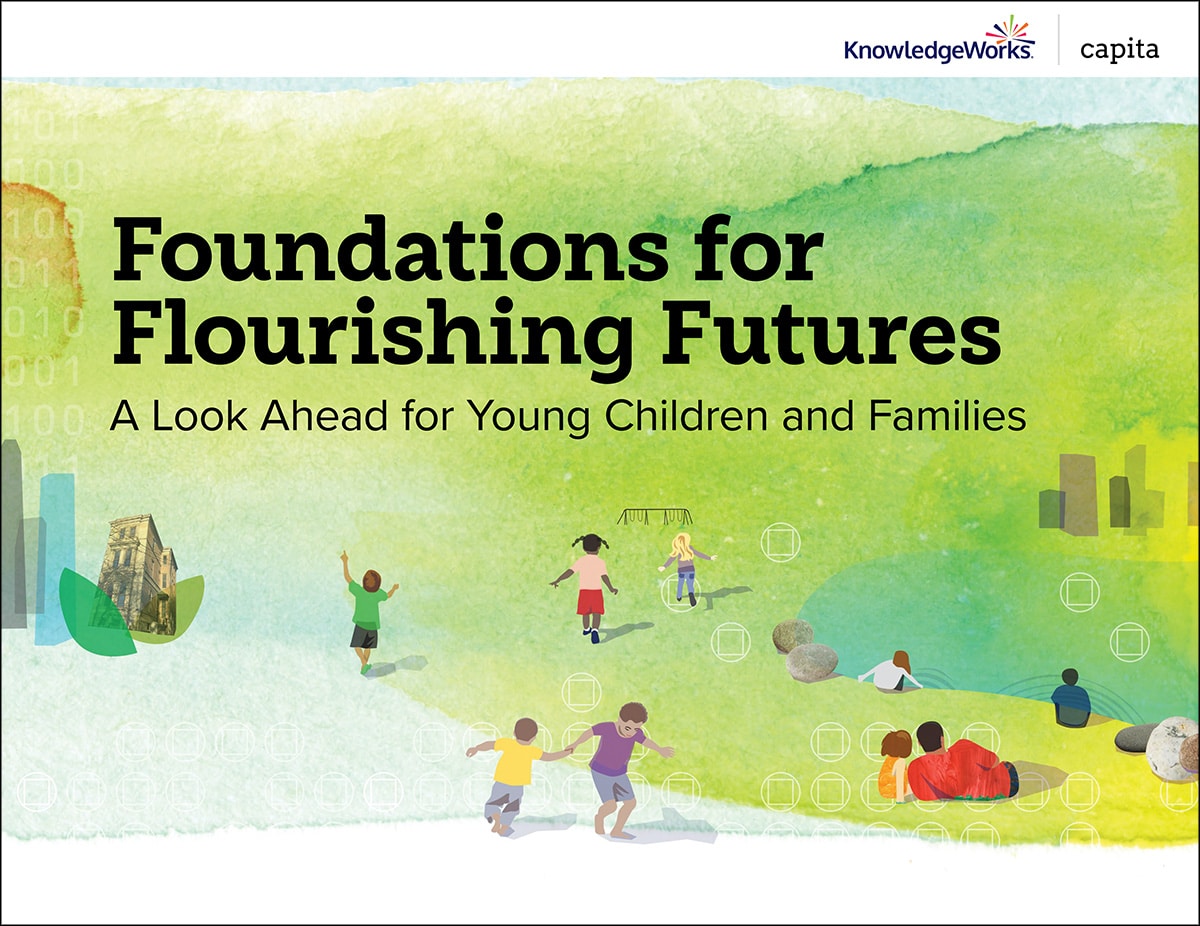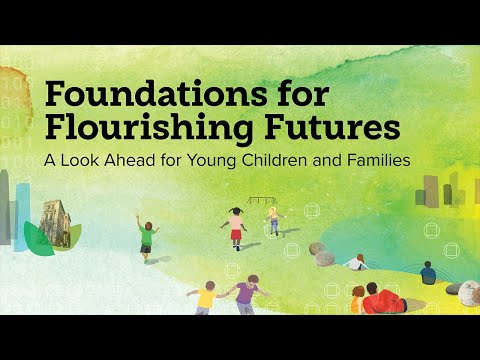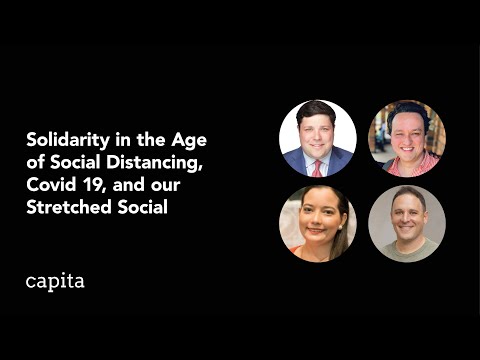 What if innovation created more stability, not more disruption, for young children and families? What if children were treated as full members of society instead of as adults in training? What if flourishing were seen as a common good instead of as an individual accomplishment? What if every issue was a children’s issue?
What if innovation created more stability, not more disruption, for young children and families? What if children were treated as full members of society instead of as adults in training? What if flourishing were seen as a common good instead of as an individual accomplishment? What if every issue was a children’s issue?
When we talk about the future, we talk about children. Too often, we do not recognize how the profound social, economic and technological changes underway will reshape their lives and our very understanding of what it means to be a child. Foundations for Flourishing Futures: A Look Ahead for Children and Families© will help leaders across sectors navigate that gap, understand their own work in new ways and do their part to ensure that every child and family can flourish in the future.
Five Crucial Domains
This forecast presents five crucial domains and emerging issues within them:
- Health by the Numbers: Emerging technologies and new understandings of community-level health are reshaping how young children’s and families’ well-being are measured and supported.
- Learning in Flux: Social and economic uncertainty and new research into the importance of relationships are influencing approaches to early learning.
- The Autonomy Gaps: New notions about young children’s autonomy, along with increasing inequity, are creating cultural and generational tensions and are widening disparities among children’s access to free expression.
- Stretched Social Fabric: Shifting support structures and information sources are changing the ways in which increasingly diverse families navigate and access resources.
- Care at the Core: New economic and employment realities and the aging of the population are creating tensions related to caregiving structures and values.
To bring each domain to life, the forecast illustrates objects, roles, places and practices that could exist in the future. It also highlights issues to watch and provides guidance for creating flourishing futures.
Leaders have the responsibility to engage in bold, aspirational and long-term thinking that can lead to new avenues of innovation, unlikely but meaningful partnerships and a fresh mindset about what it will take to help every young child and family flourish in the future.
Download the forecast below or order printed copies free of charge.


 KnowledgeWorks partners with Capita to explore what the future holds for the youngest members of our society. Capita is a platform for fostering new ideas, and encouraging informed debate about critical issues impacting children, families, and the common good.
KnowledgeWorks partners with Capita to explore what the future holds for the youngest members of our society. Capita is a platform for fostering new ideas, and encouraging informed debate about critical issues impacting children, families, and the common good.




